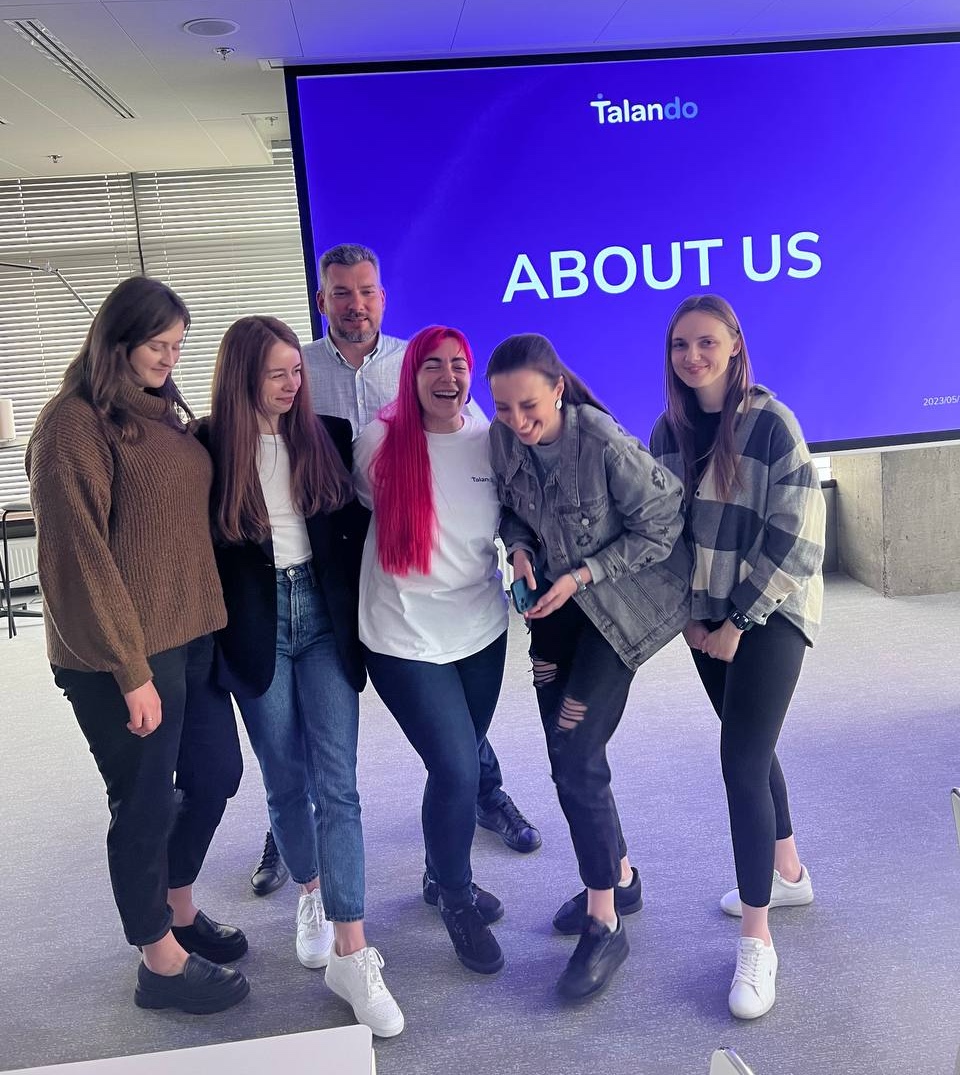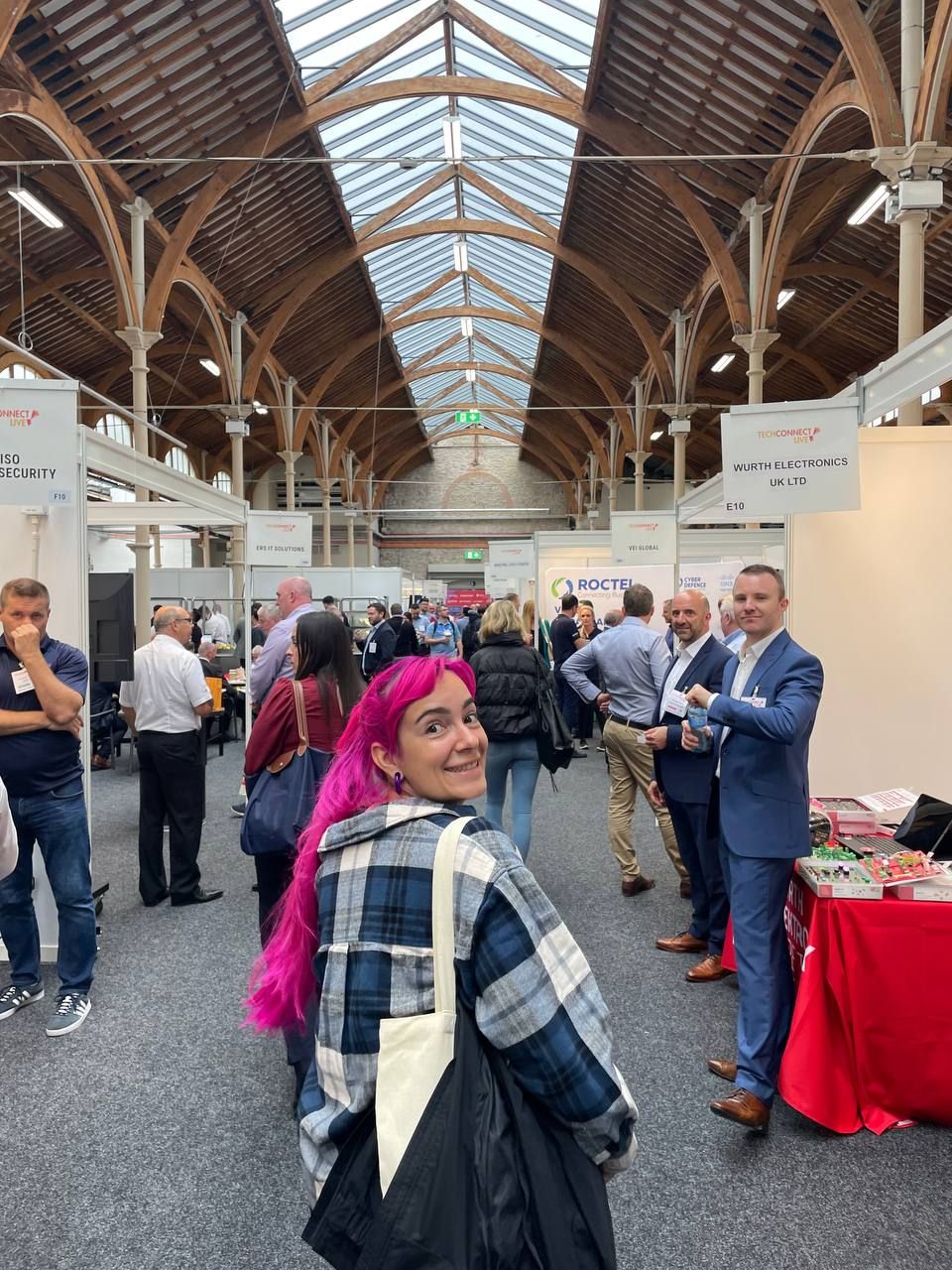Effectively solving a problem means solving the right problem. Before tackling a new exciting challenge the first question must always be: are we solving the problem that most merits solving? The costly alchemy of turning time and capital into solutions is only justified when the answer is a resounding yes.
So Vlada Liashchenko, the CEO of Talando Recruitment, believes. Her company makes a point of valuing the time of their customers. They dive into client’s problems and try to understand the real cause behind the request, and indeed, sometimes just hiring additional employees is not the solution. And the stakes are more than just operational; they are reputational and, often, moral.
The main aim for our company and our team is to help clients ease their pain if it's possible, or to solve it. I don't have the main idea that we need to staff any candidate, whatever it takes. I do believe it’s more about equal partnership.

Talando Recruitment is a company that provides recruitment services for product companies and startups. It’s headquartered now in the UK, and they hire worldwide. Working with different international markets, and having a more than decade of experience working and hiring for product companies in Ukraine and abroad, Vlada has a perspective on today’s challenges, and extreme situations of recruitment and talent management.
One of them, for example, is the world macroeconomic situation, and that there are silent layoffs at the big tech players including Meta, Google, and others.
And I do believe there are gonna be a bit more [layoffs], so the tech world is spinning around and going a little bit in circles, so we might face a crisis similar to 2008, but we're like fingers crossed and we hope it's going to be easier for us because we have been through that once.
Another challenge that Vlada mentioned is the remote work itself: something that they had to adjust to since post-pandemic companies are now in a partial “want to return” state.
But some of the companies, nowadays, they're looking to hire employees who are going to the offices and statistically most of the people who are working remotely, they tend to work 20% more, like 20% longer than if they're going to the office. So this might be a huge problem.
And, of course, she can observe that the Russian-Ukraine war influences a lot the hiring situation for the candidates who left Ukraine and are trying to get a job, and they are trying hard to get any job… They are asking for a bit lower salaries because they desperately need it and that's also causing problems.
In contrast, in the Polish market, they're having a huge boom, because Ukraine is currently a war zone, so they are having a lot of new clients, and a lot of new outsourcing companies have emerged. Some Ukrainian outsourcing companies also relocated their offices to Poland.
But, Vlada, overall, is positive about the situation and she believes it should be better soon in terms of the number of open positions.
Another observation from her perch in the industry is the job seeking experience on different markets:
For example, if we talk about recruitment in Canada, one of my friends sent around like 200 applications and she had zero responses. That's a really poor statistic. In Germany, the rate is pretty much the same because to apply for the position in Germany, you need to know the German language. Even if we're talking about tech, it's almost mandatory to know it. So the market is pretty intense and I believe the best approach is to add cover letters.
And some of the candidates from Ukraine might be overqualified for this or that position because we have a really wide range of experience in different domains. So that might be an issue as well for some of the countries and locations and the companies as well.
Talking about the UK market, where Vlada currently operates, she said that the difference is huge, but the problems are the same - everybody needs qualified candidates. They just have a different approach in going through this journey. For example, she calls her clients in the UK, versus in Ukraine all of the initial communication was done by writing emails or LinkedIn chats. The UK prefers a more personal approach and you need to meet clients face-to-face, and you need to make some deals.

In terms of hiring here [the UK], they are kind of old fashioned because like 90% of the jobs this is the office jobs, so you need to go to the office, which is also different. But, I can see that there are also differences like the taxes: hiring people here is much more expensive than hiring developers in Ukraine. But something really popular here is having contractors and they're more eagerly hiring people who are not from the UK 'cause then they can treat them as contractors and reduce their taxes and legal liabilities in this way.
And, Vlada receives around five calls everyday when someone tries to sell her something as well. But “somehow somehow this works for them and they continue calling, sending you emails”.
She observes the difference in tech recruitment agency structures: in Ukraine they are mostly focused on all tech stacks and positions of engineers and other tech employees; however in the UK they have a tendency to specialize only on one of the domains and even a specific location.
If you need the DevOps to hire DevOps in London, there is a special recruitment agency, which is doing this in London, and they're all divided by the niche and they're all divided by location.
Something that looks like a lack of diversification of risks for Vlada, her agency, and other recruitment agencies in Ukraine seems like a normal and a stable situation in the UK based on her conversation with several local agencies: they are sure that they will always have the assignment.
Another structural difference is that Ukraine’s recruitment agencies on the inside tend to be divided into different departments: business development department, recruiters, researchers, financial team and others; and in the UK, all of their recruiters work as 360° recruiters. That means the recruiter should find the client, should find the candidate and should close the deal. So technically it is like a one-man army, but inside of the company - and this is a really interesting approach in Vlada's opinion.
Vlada is a curious and experienced person that became CEO of this company, based on a long journey working in multiple product companies, and eventually becoming a partner in a recruitment agency to gain more diverse experience with various clients and markets and expand her knowledge. Now she definitely has more challenges in this relatively new role, but her aforementioned experience and the unique combination of traits is what drives and helps her day to day: being a competitive person that is always curious of new challenges, which one day even won a powerlifting competition in Ukraine, the winning of which came without expectations; and at the same time being an empathetic, helpful and kind person, which believes in helping people without waiting something in return, and eventually life pays her back.
To have 'thank you' is more than enough from my perspective, and if it converts to something bigger or much more meaningful, that's really nice.
Seems like that approach is mutual throughout Talando’s clients as well:
I do remember the day when the war started. Most of our clients, they just sent letters just asking, “are you okay? how is your team and all of this stuff?”. So, technically, they shouldn't have asked that or care, but they did.
Building your company around values and principles seems like a natural way when you as a founder or a top manager already have internalized them yourself.
Interestingly, Talando’s name itself combines the idea of talent - outstanding aptitude:
'Talan', which is in Ukrainian language, is, like, having the ability to do something. So it's like an ability or some specific thing, which you have, or like a talent. So it goes both ways, and 'Do' - it means to. So you have a talent to. So we have a talent to hire developers to help businesses to grow and make everything happen.
To really help a client out, you need to find the need behind the need. This process is deeply linked to a company's core values. Talando’s business decisions are guided by this genuine desire to do good by other people and really get to the root of their difficulties. Value-driven organizations are more adept at identifying and committing to problems whose solutions are both profitable and principled, embodying the very ideals upon which they are founded.
Please also enjoy our short interview:
References & Mentioned:
- Talando Recruitment website https://talando.com/
- Vlada Liashchenko’s LinkedIn
- Full YouTube Interview
- Full Podcast Interview
- Talando’s podcast mentioned in the interview called ’Interview Done’